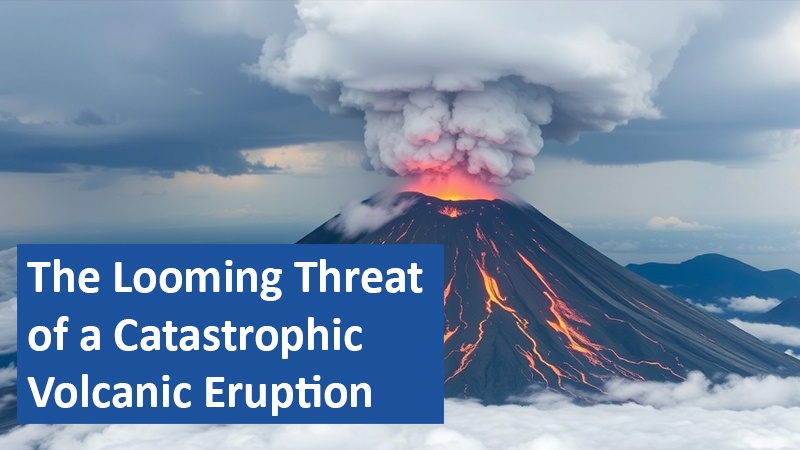The threat of a massive volcanic eruption capable of wiping out cities and causing global devastation is becoming increasingly urgent. Such rare events have the power to alter climates, disrupt food supplies, and displace millions. With these risks looming, one critical question remains: Is the world prepared for such a catastrophic scenario?
By Julian James
Lessons from Past Eruptions

The 1815 eruption of Mount Tambora is considered the most powerful in recorded history. It lowered global temperatures by approximately 1 degree Celsius, leading to crop failures and famine worldwide. Known as the “Year Without a Summer,” the event caused snow in June across North America and widespread agricultural collapse in Europe. Scientists believe eruptions of this magnitude occur approximately every 600 years, and another such event may be overdue.
The Growing Threat
Unlike previous centuries, today’s world is more interconnected and densely populated, amplifying the potential destruction of a massive eruption. Scientists warn that melting glaciers may increase eruption frequency by reducing pressure on volcanic systems. Markus Stoffel, a professor at the University of Geneva, emphasizes that “the question is not if, but when.” Such an event could devastate entire cities, collapse food supply chains, and cause trillions in economic losses.
Volcanoes and Climate Impact
Volcanic eruptions release sulfur dioxide, forming aerosols in the atmosphere that reflect sunlight and cool the Earth. For example, the 1991 Mount Pinatubo eruption cooled the planet by 0.5 degrees Celsius for several years. However, cooling effects are uneven, with some regions experiencing dramatic temperature drops of up to 7 degrees Celsius, triggering crop failures and water shortages.
Preparing for the Inevitable
While volcanic eruptions cannot be prevented, steps can be taken to mitigate their impact. Enhanced monitoring, comprehensive disaster planning, and international collaboration are crucial to minimizing loss of life and economic instability. Stoffel warns, “We’re just beginning to understand what such an event could entail.”
A massive volcanic eruption could reshape the world’s climate, economy, and societies.
Based on content from www.dailygalaxy.com and own research.